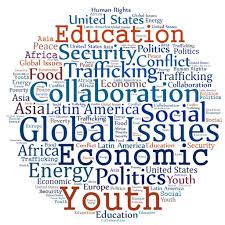Forests for the Future: International Collaboration in Global Reforestation
Introduction: This article examines the critical role of international collaboration in addressing the global challenge of deforestation and promoting large-scale reforestation efforts. We will define key concepts such as ecosystem services, sustainable resource management, and the principles of collaborative governance to understand the multifaceted nature of this complex issue. Ecosystem services refer to the myriad benefits humans derive from the natural environment, including clean air and water, climate regulation, and biodiversity. Sustainable resource management encompasses the responsible utilization of natural resources to meet present needs without compromising the ability of future generations to meet their own needs. Collaborative governance, a core principle explored herein, denotes the participatory and integrative approach necessary for effective international environmental initiatives.
The Imperative of Reforestation and Ecosystem Restoration: Deforestation significantly diminishes vital ecosystem services. Reforestation, the process of establishing forests on lands that have been deforested or degraded, is paramount for mitigating climate change, restoring biodiversity, and enhancing carbon sequestration. This aligns with ecological restoration principles, aiming to reinstate ecological integrity and functionality to degraded landscapes. International collaborations are crucial for maximizing the effectiveness and scale of these restoration endeavors, capitalizing on the combined resources and expertise of participating nations. The effectiveness of these efforts can be assessed using metrics such as carbon sequestration rates, biodiversity indices, and improvements in ecosystem services provision.
Sustainable Resource Management within a Global Framework: Achieving long-term environmental sustainability necessitates a paradigm shift towards responsible resource management. This aligns with the principles of sustainable development, emphasizing the interconnectedness of environmental, economic, and social considerations. International collaboration facilitates the exchange of best practices in sustainable forestry, minimizing the ecological footprint of human activities, and promoting circular economy principles to reduce waste and maximize resource utilization. The application of the triple bottom line framework (environmental, social, and economic) provides a comprehensive evaluation method for reforestation projects.
Global Environmental Governance and Collaborative Action: Environmental challenges, including deforestation, are inherently transboundary, requiring concerted global action. The framework of international environmental agreements and collaborative governance mechanisms is crucial for coordinating national policies, pooling resources, and sharing knowledge. This collaborative approach harnesses the power of collective action, overcoming challenges associated with individual nation-state efforts and promoting a shared sense of responsibility for global environmental stewardship. The success of such collaborations can be analyzed using frameworks like the Institutional Analysis and Development framework, which examines the influence of institutions on resource management outcomes.
Knowledge Exchange and Capacity Building: International collaborations provide an unparalleled opportunity for the transfer of knowledge and technological advancements. Sharing best practices in reforestation techniques, sustainable forest management, and monitoring technologies is essential for improving efficiency and effectiveness. Capacity building initiatives, such as training programs and workshops, empower local communities and institutions, ensuring long-term sustainability of reforestation efforts. The diffusion of innovation theory helps explain how new technologies and techniques are adopted and implemented across different contexts.
Case Studies: Illustrating Collaborative Successes: The Great Green Wall initiative, a pan-African effort to combat desertification through large-scale afforestation, exemplifies the power of international collaboration. Similarly, the Bonn Challenge, a global commitment to restore 350 million hectares of degraded and deforested land, showcases the potential of collaborative goal-setting and resource mobilization. The effectiveness of these initiatives can be assessed using impact assessment methodologies, evaluating ecological, social, and economic outcomes.
Financial Mechanisms and Resource Mobilization: Successful reforestation requires substantial financial investment. International collaborations facilitate access to diverse funding sources, including governmental aid, private sector investment, and philanthropic contributions. The establishment of effective financial mechanisms, such as green bonds and carbon markets, is crucial for ensuring the long-term financial sustainability of reforestation projects. Financial viability and return on investment analyses are crucial aspects of project planning and implementation.
Community Engagement and Stakeholder Participation: Successful reforestation initiatives prioritize the active involvement of local communities. Participatory approaches ensure projects align with the needs and priorities of local stakeholders, leading to enhanced project ownership, reduced conflict, and increased long-term success. This aligns with social equity principles, ensuring that the benefits of reforestation are shared equitably within communities.
Technological Innovations in Reforestation: Technological advancements, such as remote sensing, geographic information systems (GIS), and drone technology, significantly enhance the efficiency and effectiveness of reforestation. These tools improve site selection, monitoring, and evaluation, leading to more targeted and effective interventions. The application of precision forestry principles further optimizes resource allocation and enhances the success rate of reforestation efforts.
Building Resilient Ecosystems through a Holistic Approach: Reforestation should not merely focus on planting trees but also on building resilient and diverse ecosystems. A holistic approach considers factors such as species selection, soil health, water management, and climate change adaptation, ensuring the long-term sustainability of restored ecosystems. This aligns with ecological resilience principles, focusing on the ability of ecosystems to adapt to disturbances and maintain their functions.
Conclusion and Recommendations: International collaboration is indispensable for achieving global reforestation goals and ensuring a sustainable future. Further research is needed to refine methodologies for assessing the effectiveness of collaborative initiatives, optimize resource allocation, and develop robust financial mechanisms. Recommendations include strengthening existing international agreements, promoting knowledge sharing networks, investing in capacity building, and fostering participatory approaches to ensure long-term success. The adoption of adaptive management strategies is crucial, allowing for adjustments based on monitoring data and feedback. By emphasizing a holistic and collaborative approach, the global community can accelerate progress towards restoring vital forest ecosystems and ensuring a sustainable future for all.
Reader Pool: Considering the complexities of international collaboration in reforestation, what innovative strategies could be employed to enhance the effectiveness of financial mechanisms and resource mobilization for large-scale projects?
```








No comments yet. Be the first to share your thoughts!